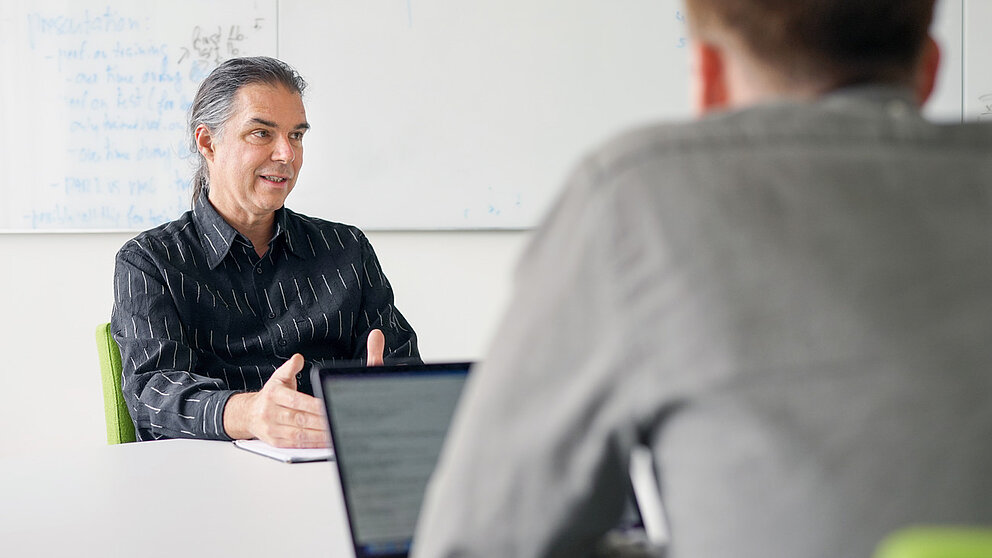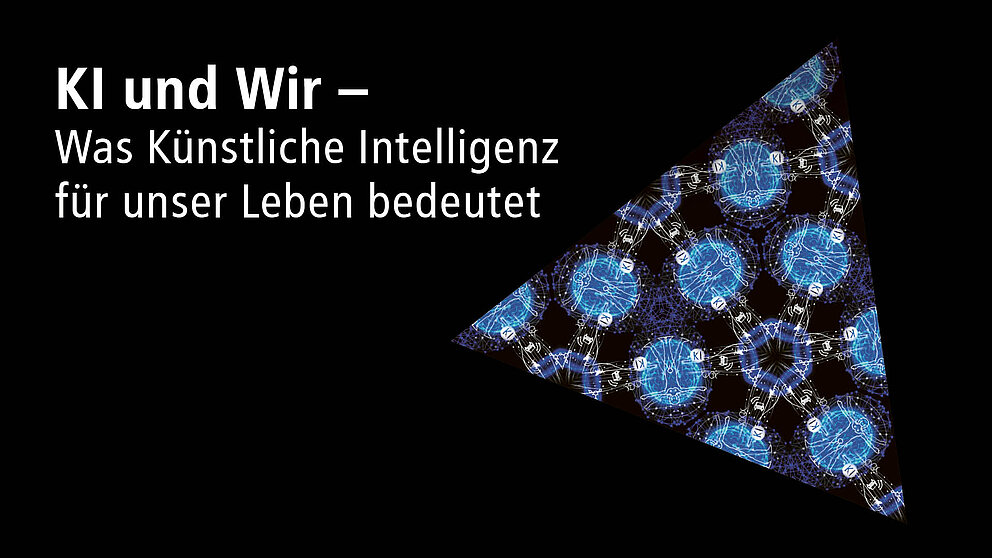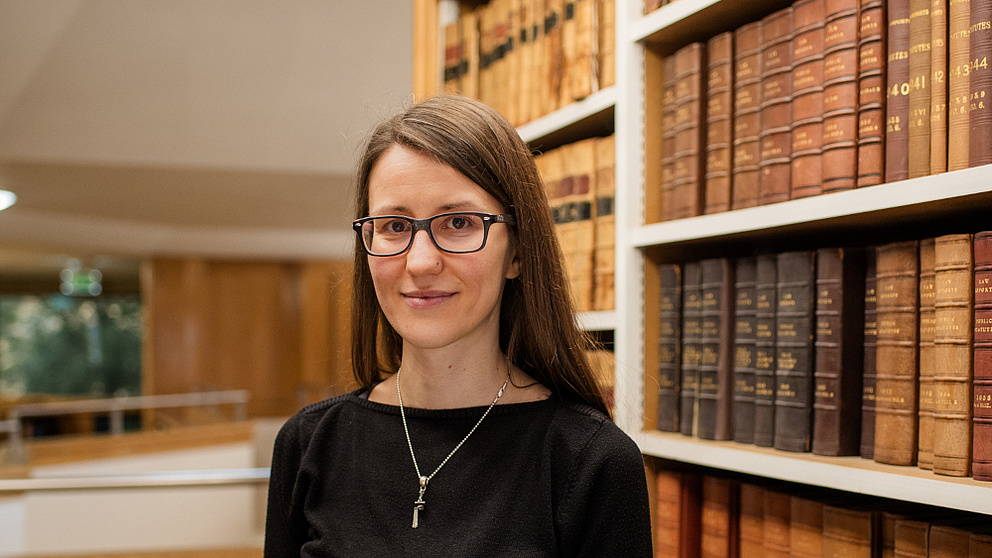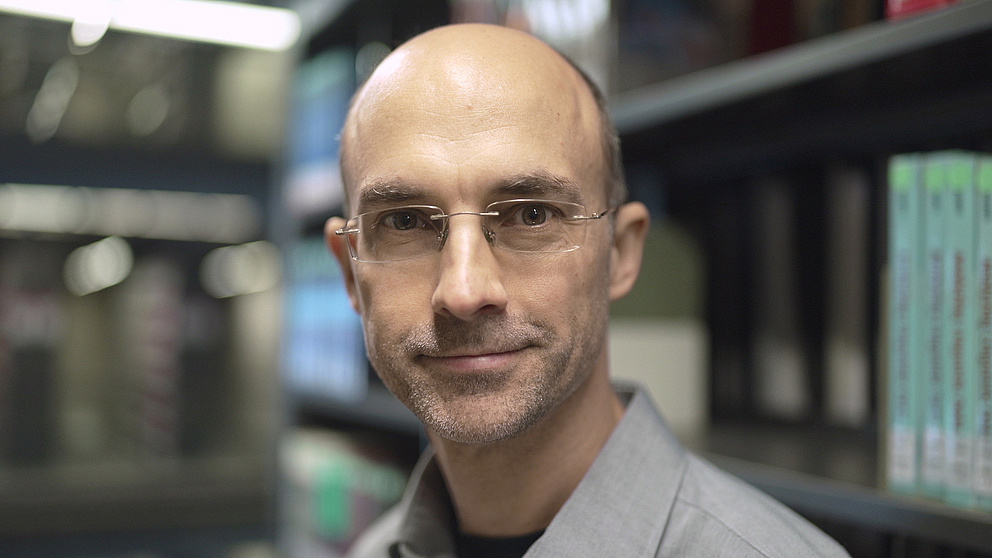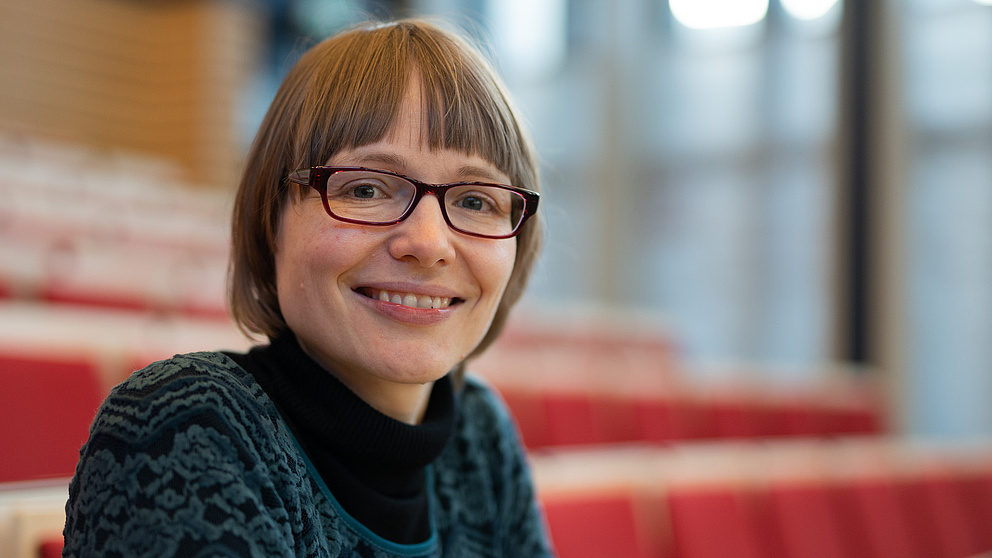Jump to the content
- {{#headlines}}
- {{title}} {{/headlines}}

Contact
Press, Communications and Marketing
Tel.: +49 228 833-144
Fax: +49 228 833-441
presse[at]avh.de
Artificial intelligence
Artificial intelligence (AI) alters the way we live, work and think. It can deliver solutions to climate change and the exploration of diseases but can also become a tool for inequality and disinformation. In this context, scientific progress plays a key role. The Humboldt Foundation wants to offer scope for innovative research projects in artificial intelligence whilst keeping a critical eye on the “AI revolution” and the concomitant social change.
Through the Alexander von Humboldt Professorship for Artificial Intelligence, the Humboldt Foundation promotes top international research into AI at the intersection of technology, the environment and society. It pools expertise within and outside of its network in order to drive the fair and sustainable management of transformative technologies.
Moreover, together with its partner organisations nationally and internationally, the Foundation monitors developments in generative AI and develops measures to make use of artificial intelligence in selection and sponsorship activities. Global collaboration with excellent researchers is precisely the way we can develop important guidelines today for the safe AI of tomorrow.
International AI expertise in the network
Humboldt Professorship for Artificial Intelligence
Through the Humboldt Professorship for Artificial Intelligence, the Alexander von Humboldt Foundation promotes outstanding personalities in the field of new, transformative technologies. A core feature of the reward is a holistic approach that also takes account of the impact of AI on society. Financed by the Federal Ministry of Education and Research under its artificial intelligence strategy, the professorship enables world-leading researchers from abroad to conduct forward-looking research at universities and research institutions in Germany.
More precise diagnosis in cancer research, big scale evaluations of online hate speech, or long-term predictions on the spread of global diseases: our Humboldt Professors for AI make such things possible – with the help of AI and new machine learning tools. Visit here for the detailed dossiers on our 20 Humboldt Professors for AI.
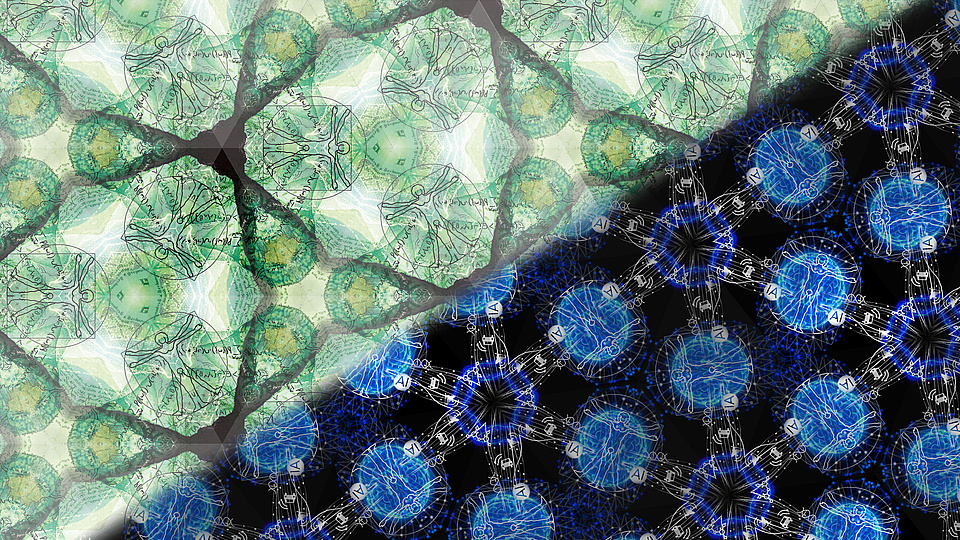
Recommendations for Germany as an AI research location
During the Future of AI summit at RWTH Aachen University in 2023, the Humboldt Professors for Artificial Intelligence drew up a list of seven recommendations on the future viability of AI research in Germany. They formulated a clear request to the federal government: In addition to better financial support, definite steps needed to be taken towards technological independence as well as appropriate advisory structures in politics and business. The aim of the summit was to pool Germany’s expertise in AI research, promote the specialist conversation and explain AI to the public at large.
Communicating artificial intelligence
AI and Us – what artificial intelligence means for our lives (podcast series)
Together with the AI journalist Thomas Reintjes, the Alexander von Humboldt Foundation produced the ten-part podcast series, “AI and US – what artificial intelligence means for our lives.” AI experts from the Foundation’s network report on their research fields. What can artificial intelligence already do and how will it benefit us in the future? You can listen to all the episodes of “AI and Us” wherever there are podcasts or here directly.
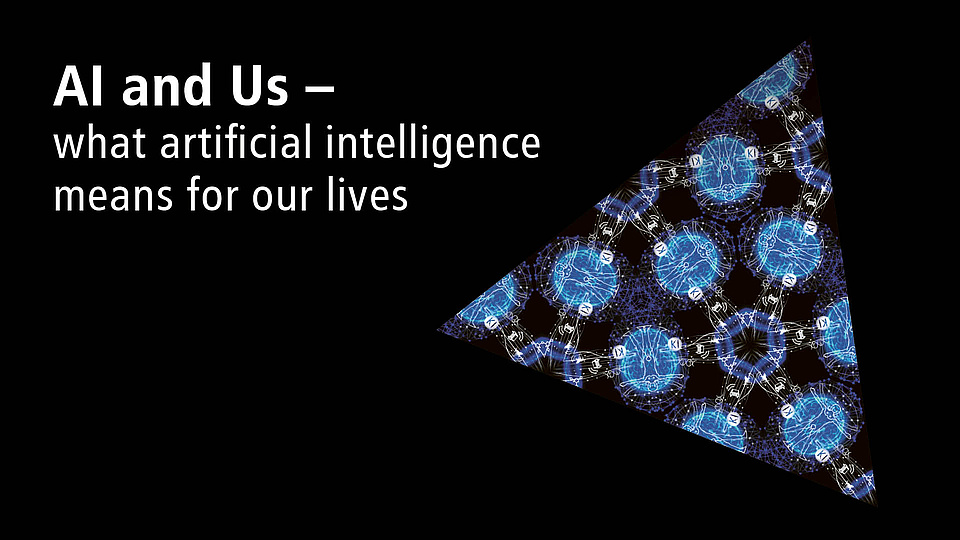
“By courtesy of” – Kosmos magazine
Artificial intelligence helps to develop vaccines and better diagnostics. It is needed to manage tomorrow’s complex green energy systems and calculate climate models. How useful or harmful it is depends on the kind of AI we want. The Kosmos magazine “By courtesy of” delves into the advantages and disadvantages of AI and presents exciting insights into current AI research in the Humboldt Network.

The Foundation – a hub for AI issues
Humboldt Academia in Society Summit: Facing the AI Revolution
At the Humboldt Academia in Society Summit in Berlin on 21 June 2022, top AI researchers discussed the ethical, social and legal challenges posed by the “AI revolution” with stakeholders from civil society, politics and industry. The event focused on the question of how AI can contribute to a sustainable and fair world – while weighing up the costs and risks that the tool itself produces.
Managing generative AI in the selection department
Since the introduction of ChatGPT at the very latest, generative artificial intelligence has increasingly been shaping the science system as well. When formulating academic papers and funding applications, text-generating AI is being used ever more often. Whilst the scientific community has not yet come to a consensus on how generative AI applications should be utilised and potentially flagged up, it is clear that informed and responsible handling of AI is required. The Alexander von Humboldt Foundation has thus developed a statement on the use of generative AI in the selection department. In principle, the Humboldt Foundation welcomes the use of generative AI as an aid in the application or nomination process, provided it complies with the rules of good scientific practice. For producing expert reviews, the use of AI tools is only permitted if confidentiality of the review procedure is maintained. Users of generative AI are responsible for the content and quality assurance of the results.



